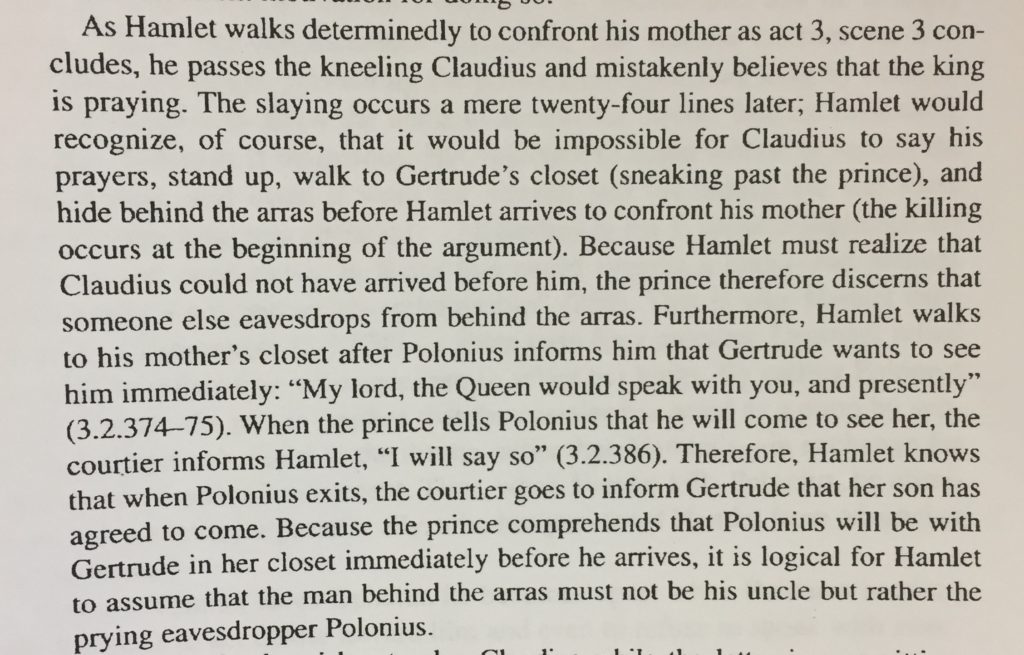Heigh, ho! Bardfilm here.
I just read a brief 2001 article by Eric Sterling that argues that Hamlet knew that it was Polonius behind the arras and that he kills him on purpose (rather than killing him by mistake, thinking him to be Claudius).
Here’s his argument in a nutshell:

It’s an interesting idea, but I’m not sure Sterling addresses the counterarguments sufficiently. He asks us to consider the lines “I took thee for thy better” and “For this same lord I do repent” as Hamlet pretending he mistook Polonius for Claudius.
Does Hamlet have enough motive to kill Polonius? If he knows it’s Polonius back there, how can he kill him without a soliloquy examining the pros and cons of such an action?

It seems to me, that if Hamlet could analyze the situation he would have come to the conclusion: probably behind the arras is Polonius. But he could not: he was very excited – even on the brink of insanity (let`s remember Gertrude`s words: `Alas he`s mad`). He did impulsive, not reflecting and not intending to kill Polonius — he did not care who was there.
I think “I took thee for thy better” can be read in (at least two ways).
1. I thought you were Claudius and killed you. Oops.
2. I really wish I could have killed Claudius, but since he’s the king and was praying, I can’t really do that (yet), so I’m displacing my anger and killed you. Sorry/not sorry. (That is, I killed you in his stead.)
I tend to read the second more strongly